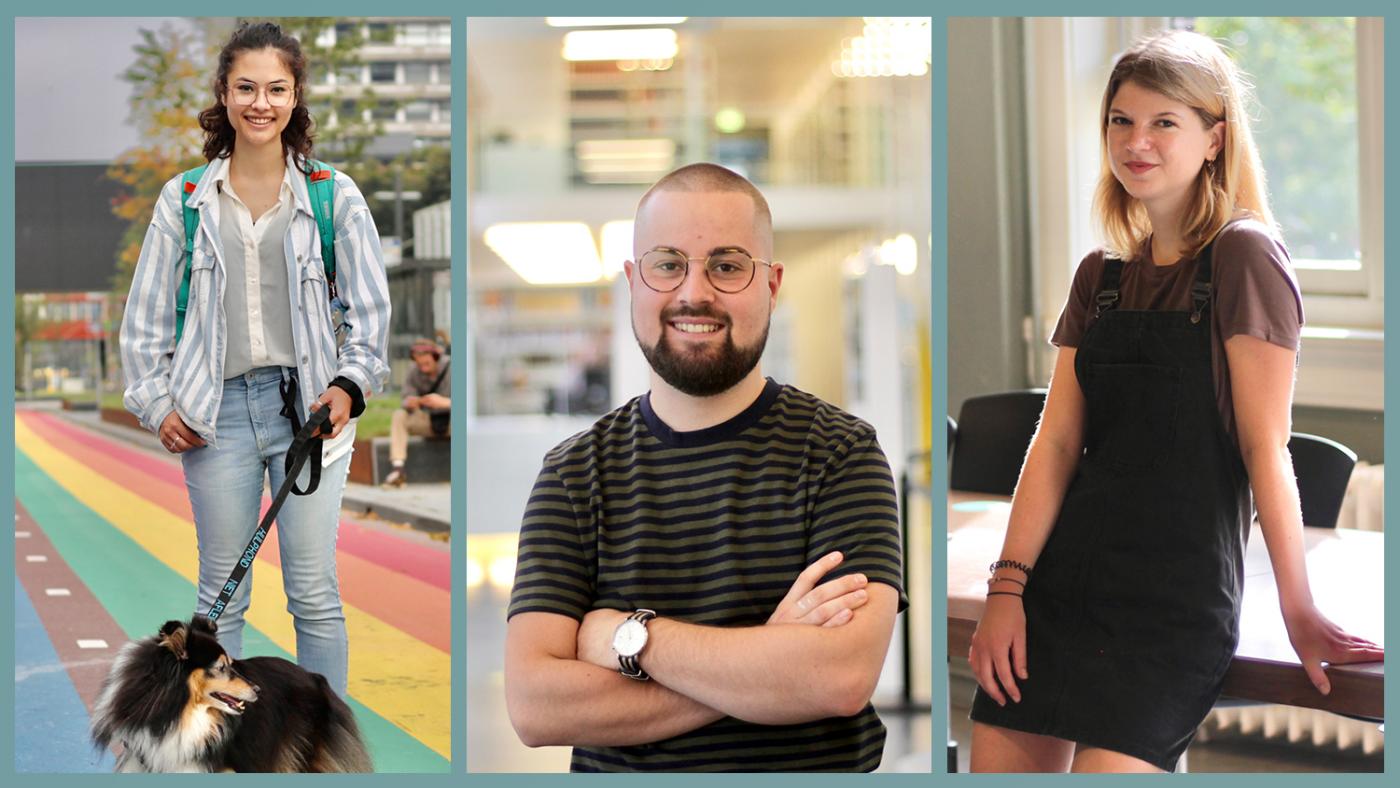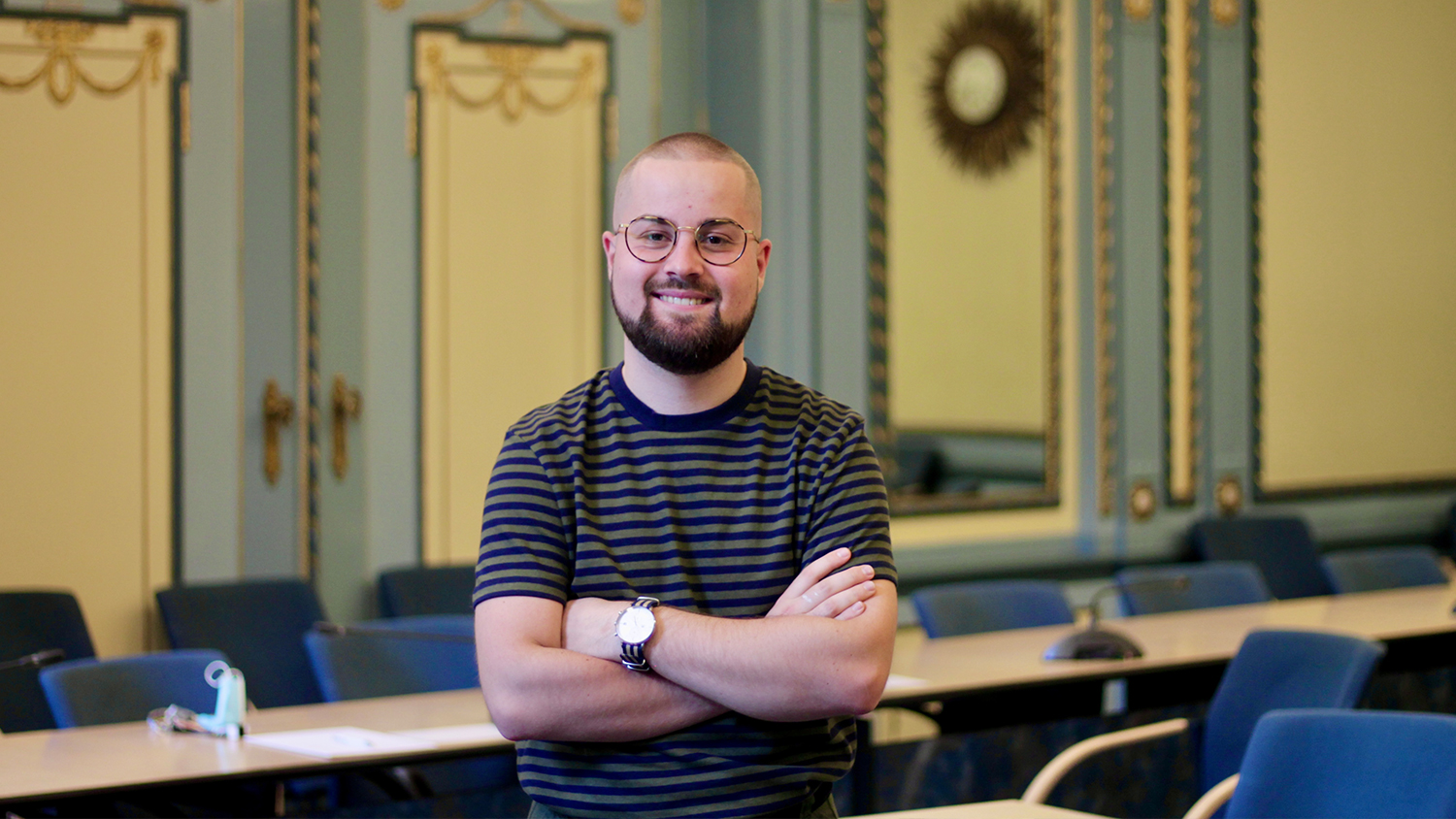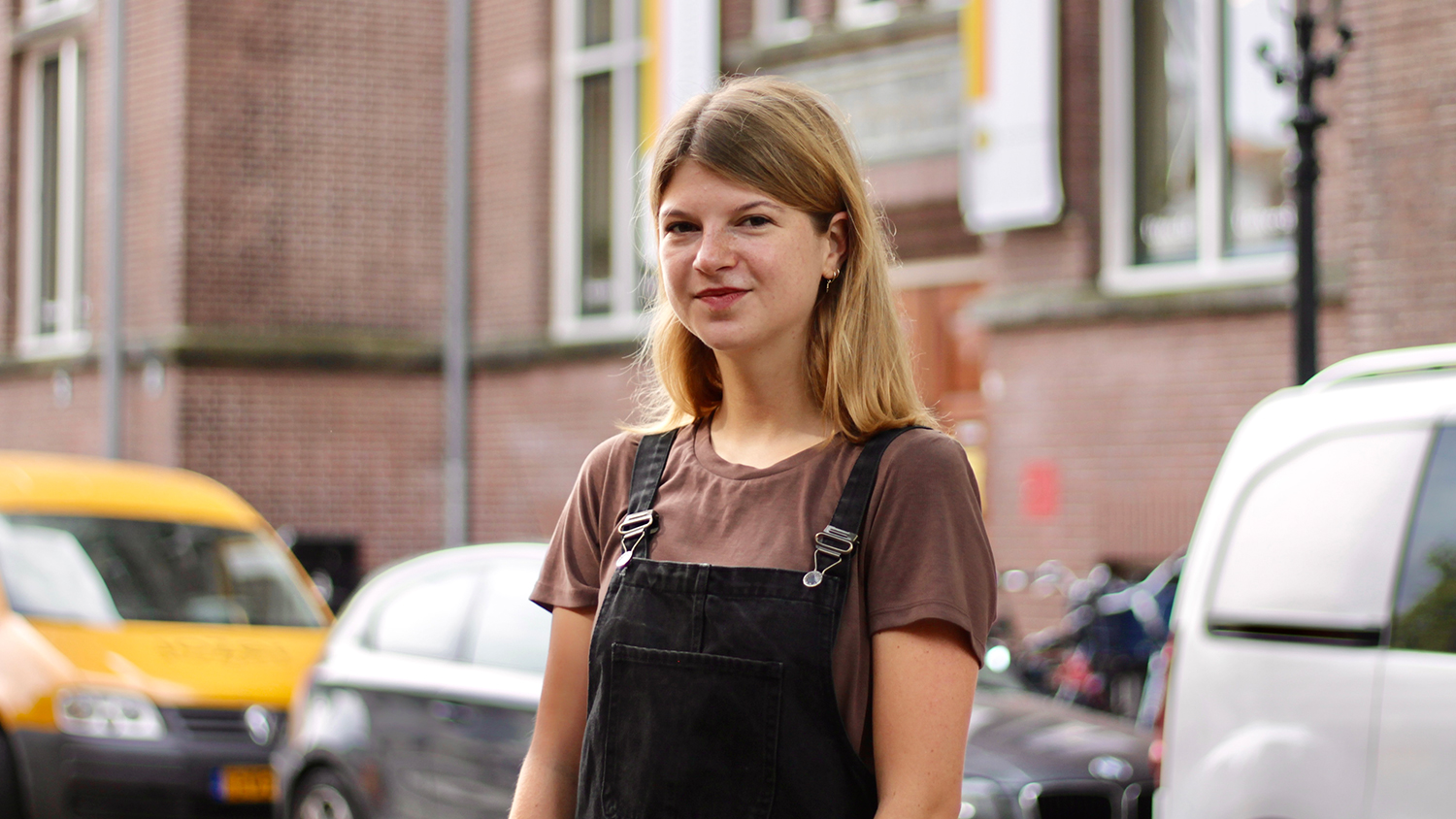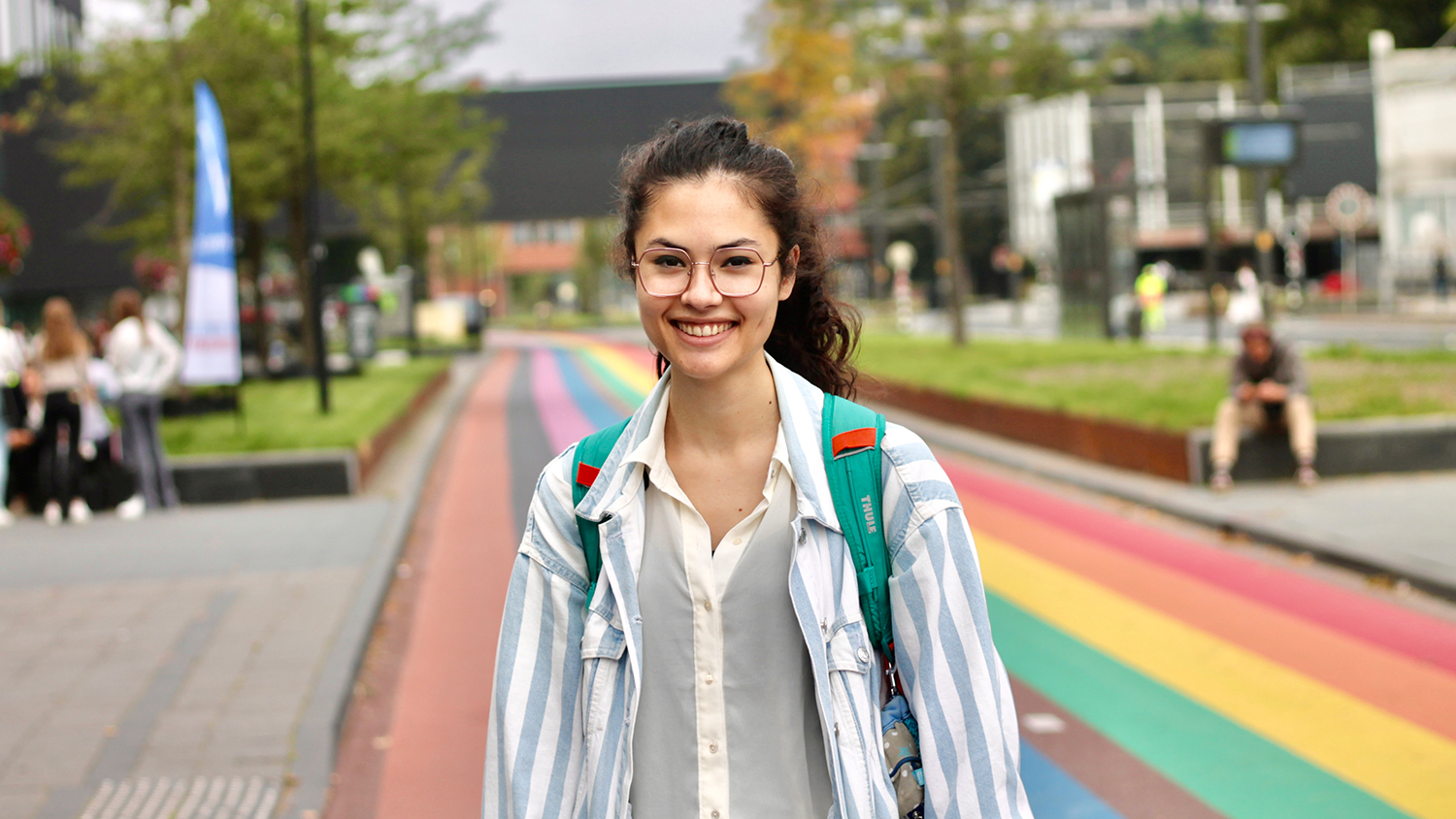Student assessor: the voice of the student in the university's boards

Wessel van Wijngaarden (24), Bachelor's student of Language & Culture and student assessor at the Faculty of Humanities in 2020-2021.

Why did you choose to apply for this position?
“I learned a lot about the faculty while serving in the board of my student association, Alias, for a year. After that, I just wanted to learn more, so I ran for a position in the faculty board, was elected, and spent a year in the council. Then I applied for the position of assessor in the faculty board because I wanted to be more on the side that had the control rather than the co-determination side. I didn't want to just be criticising policies; rather, I wanted to actually have input on governance, improving things. And, in that manner, finding the best way to make the voices of our 6,000 students be heard.”
What did you think of your year as student assessor?
“It was a fun, interesting, educational year. More than ever before, I saw how different people, positions, and departments can work together in a professional organisation. Because of Covid, I saw first-hand how complicated decisions can be made fast. I feel like I was able to contribute to that, and was able to guarantee that attention was being paid to the students’ perspective.
“Less amazing things about the position were the amount of work I had to do from home, and the bureaucracy that reigns at the university. If you’ve got a new plan, you have to go through so many different people, have a lot of long meetings – and, oftentimes, nothing happens in the end.”
What were you able to achieve in that position?
“Among other things, I drafted a new policy that student organisations must adhere to in order to be acknowledged by the faculty. I also organised the Career Night – whose entire programme had to take place online for the first time.
“I’m most proud of my work surrounding the professionalisation of student communication. Sometimes, the university seems to forget that it is communicating with a younger generation, for example when it sends students e-mails with massive amounts of unclear information. The faculty was open to my criticism in this regard. Together with Nicoline Fokkema, from the department of Student Affairs, Education & Research, I've designed a visually attractive newsletter and we’re working on consistently improving the faculty’s websites.”
Were you allowed to attend all faculty board meetings as a student assessor?
“I wasn’t allowed to attend confidential meetings at first, but my predecessor and I requested that I'd be allowed to anyway. A lot of sensitive subjects are discussed during these meetings, such as staff issues, appointments, and large projects. I understand that they don’t want this information in the hands of a new student each year, but I’m glad I was able to have an additional moment to be in touch with the board each week.”
Do you have any advice for the student assessor joining the Executive Board?
“To be honest, I’m not a big fan of this new position. In my experience, there’s already quite a big gap between the Executive Board and the faculties. Rather than adding an extra person in between, it would be better to have the faculty assessors meet with the Executive Board from time to time. My advice, therefore, would be that bringing the assessors together would be a nice goal to set, as well as bridging the gap between them, the Executive Board, and the University Council.”
Simone Arnold (22) student of Governance and Law at the Utrecht Law College, student assessor at the Faculty of Law.

Why did you choose to apply for this position?
“To be honest, I didn’t know about the existence of this position in the faculty board. I was planning on studying in New Zealand for a semester, but my exchange got cancelled because of Covid. So, when I saw the vacancy for student assessor on social media, I was immediately interested. The university is such a large organisation and we, the students, only get to see so little of it. You barely notice – or don’t notice at all – what’s going on behind the scenes, so I was curious about it. It also thought that working with experienced administrators would be a valuable experience for me.”
Did the experience live up to your expectations?
“The university is incredibly complex and its administration is so interesting, that was surprising. So many committees, councils and boards work together like cogs in a mighty machine to realise the education at the university. Before I started, I really had no idea about any of that, and I learned so much.
“One thing that was disappointing was that most meetings took place online. I was hoping to be able to meet most colleagues ‘in real life’, but that wasn't possible in many cases. I would have preferred to see each other in 3D.”
Did you still have the chance to have an impact as student assessor?
“Definitely. In a year marked by online education, it was crucial to represent the students' voice. Online education took some experimentation at first, and the teachers were no longer able to get feedback from students just by walking down the hallway. As part of the faculty board, I could talk about how students were experiencing that period and the switch to online education, and they listened to me. It was nice to be able to do something for the students.”
Which of the projects or activities you participated in are you most proud of?
“I'm proud of quite a few, actually. In the beginning of the year, I fought for more study spots for students and a system for reserving those spots that worked well. Both requests came true. Around Christmas, we organised a Christmas dinner for international students who weren’t able to go home because of Covid. And, in the spring, I worked with student organisations Vidius and Frisse Gedachtes to establish UU Walks, a platform matching students who wanted to meet new people for a walk.”
Melissa Alberts (28) Master’s student of Clinical Child & Adolescent Psychology, student assessor at the Faculty of Social Sciences.

Why did you choose to apply for this position at the time?
“I wanted to work on making the university accessible for all students, especially those with disabilities. Students with disabilities or chronic illnesses often struggle with strict rules regarding calling in sick for exams, for example. For most students, these rules serve to encourage them to keep up with the course, but students with disabilities would benefit from custom solutions.”
Were you able to achieve that?
“Unfortunately, no. Because of Covid-crisis management and a lot of other tasks, I didn’t get around to the projects I wanted to set up. But I’m still satisfied with my year as student assessor.”
What did you like the most about your position?
“Being allowed to attend meetings with the faculty board. Although the meetings were held online, it’s really cool to have had the chance to be involved in things that most students have no idea of. I was taken seriously each time I gave feedback, people listened well to my input.”
Which of the projects or activities you participated in are you most proud of?
“I'd have to say my work regarding the old faculty association SGS – Student Group Social Sciences. Since the number of members had been declining for years, the previous board decided to abolish it, and this process had to be managed well. I had just started my position when I was given this responsibility but, in the end, I worked with the study association to devise a good plan laying out how other associations would pick up the tasks and finances of the old one. It took most of the academic year before everything was taken care of but that only makes me extra happy and proud that it all went well.”
What’s the relationship between your position and the faculty council?
“It sometimes feels as though you’ve got a crazy, dual role. On the one hand, you represent the students’ voice, which is also represented in the university council. But, on the other hand, you’re a member of the faculty board and those two parties can be diametrically opposed to each other at times.
“Take, for instance, the recent discussions about scheduling. As a result of the Covid measures, creating the schedules was a much bigger puzzle than it usually is. Many students felt that the process was way too slow, they wanted to receive their schedules sooner. As a student, I would also like to get my schedule as soon as possible, but because of my position, I could see how hard the schedulers were working. I saw how much time and energy it takes to do that job. This dual role has made me understand both perspectives, which makes the position a lot of fun to do.”
Do you have any advice for the student assessor joining the Executive Board?
“I think this new position is great. Let students be represented in the Executive Board, too. It’s also easier for the university board to check what students feel about something if they’ve got a student amongst them.”